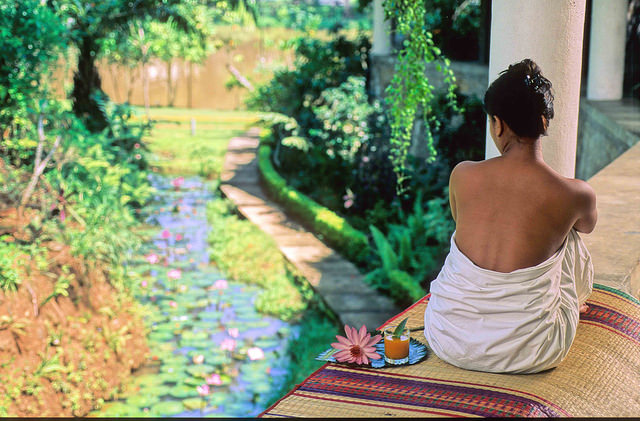Ayurveda. It’s probably a word that you’ve heard before.
It’s popping up on the labels of natural beauty products, being tagged on social media photos of golden milk, and making its way into yoga studios. But for most people, the question remains: What is Ayurveda exactly?
Few seem to know the answer, let alone feel comfortable pronouncing it (aay-yur-vay-duh).
Ayurveda is a two-part Sanskrit word: ayu meaning “life,” and veda meaning “knowledge,” or “science.” Altogether, it translates as “the knowledge of life.” And its name says it all. Ayurveda is a body of wisdom that teaches us how to live healthfully and happily in our body in the most natural way possible.
The more I study, practice, teach, and live Ayurveda, the more I realize what a true blessing this knowledge is. If each of us were to embrace even a sliver of its wisdom, the whole of humanity would experience greater wellbeing.
Ayurveda can help us to heal from lesser physical woes like bloating and headaches as well as more deep-seated diseases like rheumatoid arthritis and even cancer. It is a complete system of holistic medicine with extensive knowledge of pathology and treatment. There are eight medical branches of Ayurveda: internal medicine, Ear, Nose, and Throat (ENT), toxicology, pediatrics, surgery (it even boasts the first rhinoplasty), psychiatry, aphrodisiacs, and rejuvenation.
Ayurvedic hospitals in India are as established as modern medicine hospitals, with doctors who train as rigorously as U.S. medical doctors.
But Ayurveda is not limited to the treatment of disease.
Actually, it’s first and foremost a way of life; teaching us how to prevent disease by living harmoniously with nature. It is universal, meaning that anyone, anywhere, of any age and believing in any spiritual philosophy can live the ayurvedic way. It is timeless, and based on the universal laws of nature. This is why despite being thousands of years old and originating in ancient India, Ayurveda remains relevant today both in India and across the globe.
Ayurveda is a bit like a manual for the human body. It’s the wisdom that we all need to take care of our human form—the information that’s clearly lacking as made apparent by the myriad of diseases from which we presently suffer.
Ayurveda teaches that we are intrinsically connected to the world around us, made up of the same five elements (air, space, fire, water, and earth) as everything else in the universe. What exists within nature also exists within us, and what happens in nature happens within us, too. This means that we are very much affected by the rhythms of the sun and moon, the pulse of the seasons, and the cadence of nature’s daily energies.
It’s when we give reverence to this relationship and align ourselves with nature’s heartbeat that we experience true wellbeing. Ayurveda teaches how to live this life in line with nature. It explains the best practices for wholesome nourishment, self-care, sleep, exercise, lifestyle and even communication—all tailored to our own unique constitution. It’s not so esoteric at all, nor is it meant solely for hippies or spiritual seekers. It’s a body of wisdom that’s meant for everyone.
I truly believe that we could all use a little (better yet, a lot) of Ayurveda in our lives. As I teach people to embrace this wisdom, I often hear things like “this really resonates with me” or “this makes a lot of sense.” This is because Ayurveda is based on the laws of nature. It’s an intuitive way of self-care. We just need to be awakened to it; to open our minds a bit and reconnect with the natural world around us.
Stepping into Ayurveda is stepping into true, lasting wellbeing. It’s a way to reconnect with our true Self—that which is healthy, vibrant, and spiritually uplifted.
~
Author: Julie Bernier
Editor: Travis May
Images: Flickr/Amila Tennakoon


 Share on bsky
Share on bsky



Read 0 comments and reply